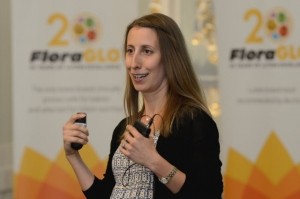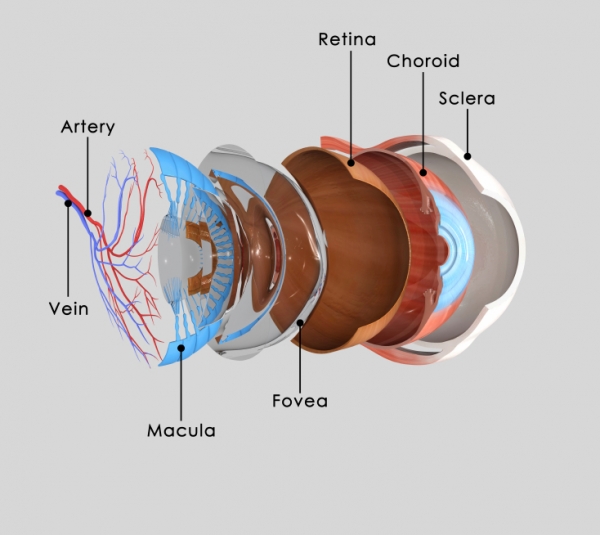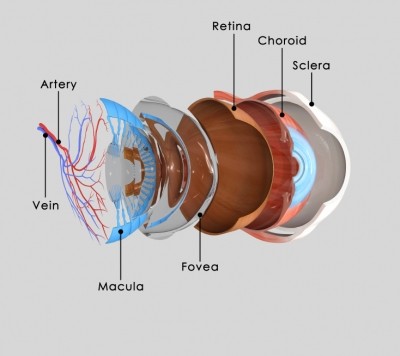Researcher: 'Lutein could be more important than vitamin C.'
Lutein shows brain health promise beyond ‘Alzheimer’s of the eye’

Latest research is showing the carotenoid, and others like zeaxanthin, have an important role to play in conjunction with omega-3 fatty acids like DHA (docosahexaenoic acid) in cognition, and may even have something to say about the onset and development of type 2 diabetes.
Veteran researcher Tos Berendschot, PhD, from the University Eye Clinic Maastricht in the Netherlands, told us the congress marked a leap in understanding lutein’s real biological function.
“It shifts to the brain because the eye can be a marker for what is going on in the brain, and also in brain research on its own. So lutein as a nutrient that is directly linked to cognitive performance both in adults and in children.”
“As a researcher I am always sceptical, but sometimes the results speak for themselves. I think lutein could be more important than vitamin C.”
The conclusions are perhaps not so surprising when it is considered that, as Lisa Renzi-Hammond, PhD, from the Vision, Brain and Behavioural Department at the University of Georgia, observed in her presentation - “the retina IS the brain – a little detached piece of brain.”
Dietary or naturally-sourced lutein is best known – and best researched – for its role in reducing the onset of age-related macular degeneration (AMD) – a problem estimated to afflict the lives of 600 million people globally by 2020.
Because of the brain-eye links, Dr Renzi-Hammond described AMD as “Alzheimer’s of the eye.”
Carotenoids like lutein and zeaxanthin increase macular content in the eye, especially in the retina, which benefits eye sight and reduces conditions like AMD and ‘blue-light fatigue’.
Lutein & the brain
This remained an interesting area of research, especially given the absence of authorised carotenoid-eye health claims in the European Union and other jurisdictions, but Dr Renzi-Hammond pointed to studies with cognitive performance as endpoints.
One study showed better performance by professional baseball batters in the US. Another showed students with lutein-provoked raised macular levels required less brain activity to perform the same tasks as a control group.
“Low levels of macular xanthophyll led to increased compensation,” Dr Renzi-Hammond told the Lisbon congress organised by lutein suppliers, DSM and Kemin. “As you can see you need more brain to do the same job.”
Professor Elizabeth Johnson, PhD, from the Jean Mayer USDA Human Nutrition Research Centre on Ageing at Tufts University in Boston, Massachusetts, noted her research showed “the brain preferentially takes up lutein compared to other carotenoids.”
There was a specific binding protein for lutein in brain matter, but it was unknown why this biological preference existed against other carotenoids, or even other nutrients.
“It is a telling sign the brain wants lutein," said Dr Johnson.
Macular density
Dr Renzi-Hammond’s husband and fellow lutein researcher from the University of Georgia, Randall Hammond, PhD, noted macular pigment density had doubled in those screened in his research and attributed the rise to increased lutein in the food chain, mostly in food supplements.
But he said this was not necessarily replicated in the wider population, something Kemin president and CEO Chris Nelson had earlier alluded to. Kemin estimates about 52m people with AMD take products containing lutein, with the total number of AMD sufferers something like 10 times that number.
Nelson wore the distinctive marigold yellow jacket he first donned at the Supply Side West trade show in Las Vegas, Nevada, in 1996 when Kemin debuted its FloraGlo marigold-source lutein, and said lutein education remained a big challenge for his company and the sector.
In this direction UK-based marketer Nicholas Hall urged greater PR efforts, even from the scientific community.
“Awareness remains very poor,” he noted adding, “Scientists need to promote brain research.”
Other areas being explored by lutein researchers include skin health and maternal and infant nutrition.


















